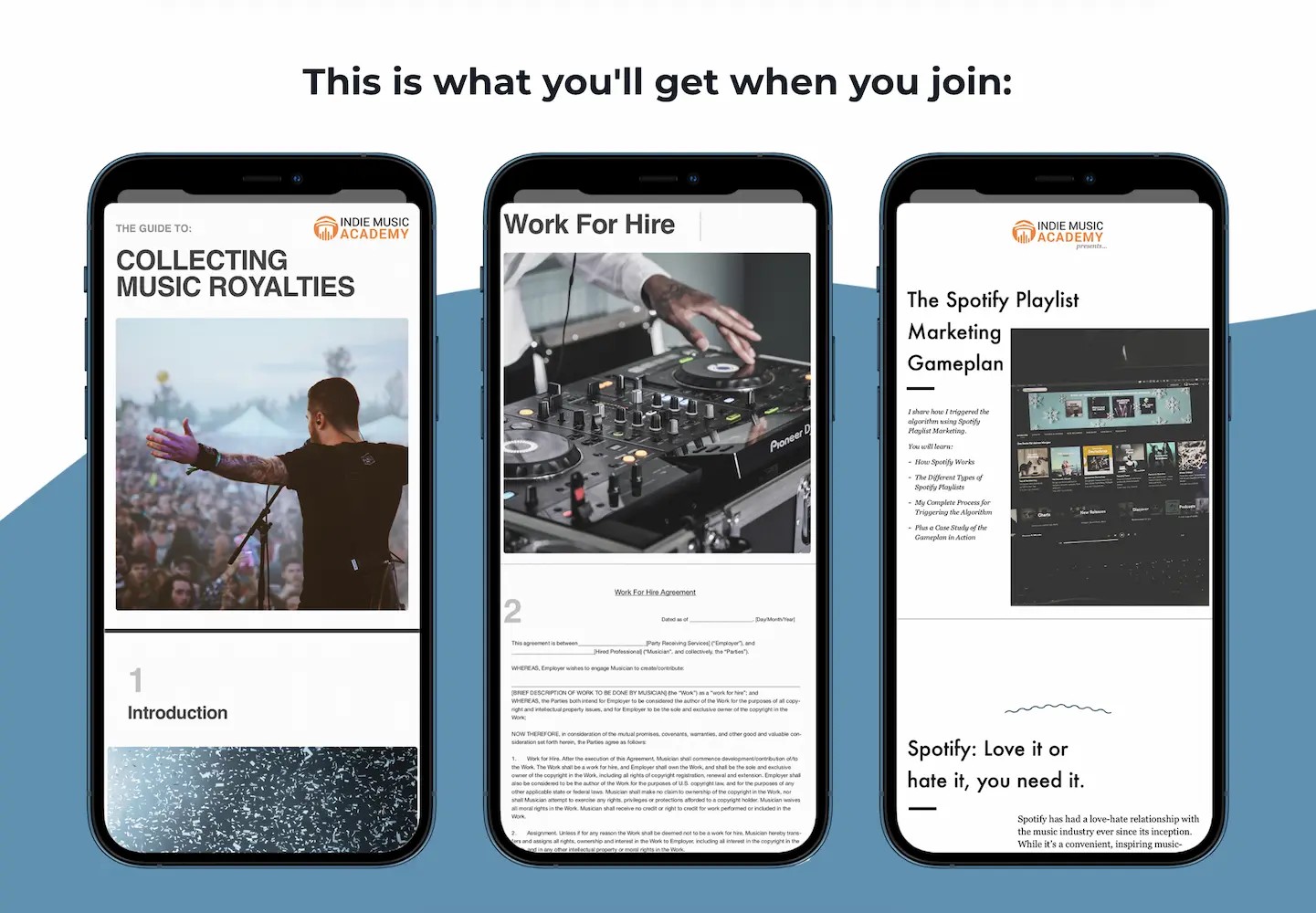Pros and Cons of Indie Record Labels You Need to Know

As an independent artist, you might be feeling like it's time to lock in a recording contract with a label. When it comes to choosing the right music label for your career, it can be comparable to choosing a business partner. You want someone who can be by your side artistically, financially, and personally. While big record labels may boast these qualities, it’s a given that all three of these traits can be found with a successful indie label. However, like all big decisions in life, there are pros and cons to independent record labels that you should consider before taking the plunge on the record deal.
Thumbs Up (The Pros) for Indie Labels
Close Relationships

Due to the small size of an independent label, it makes all the experiences more personal. Indie labels work closely with their artists at every step of the journey, from mentoring to skill-building. When you have a close knit team on call, it can make the creative process more streamlined. However, this doesn’t mean hand-holding: as the artist, you’ll still be responsible for your own creativity, but have faith in the fact that you won’t be left floundering in the deep end of the music business.
Creative Freedom in Your Music Career

Without the pressure to turn a profit and produce on a strict schedule, or under strict guidelines, it can feel more freeing to work under an indie music label. These small labels are more likely to sign bands and artists that they love and enjoy, and not just because they’re money-makers. This also means that they tend to take bigger risks on experimental artists. It may come down to your own priorities too: do you treasure selling out large stadium performances at the cost of your personal freedom, or do you prefer to be more low key, making the type of music that’s interesting and experimental?
Additionally, with indie labels an artist can get savvy with their self-marketing. You would have more freedom to share your story and gain followers that way.
Artist-Friendly Contracts

Instead of getting nickeled-and-dimed by major record labels who want their percent, an indie label can offer a more customized contract experience. For one, indie labels tend to give larger royalty percentages to their artists, and rarely do complete 360 music deals, which puts more money in your pocket. Some common examples of custom contracts include: doing away with the dreaded key person clause (this is bad for artists), exploring shared ownership rights, or even a 50/50 profit share between label and artist.
Another key factor is the transparency. Big record labels may talk some big talk and have a lot of money to promote you, but they will always get their investment back with interest later. Indie labels typically incur large amounts of debt on behalf of their artists, which you will be thanking yourself for later if you ever do find mainstream success.
Stepping Stones in the Music Industry
Not all artists have to stay with their label year after year, and it’s not unusual for artists to move on to bigger labels if they need the resources as their music career progresses. Indie labels are excellent places to get your feet wet in the industry, showing you all the same tools and tricks of the trade, but without the pressure to meet sales thresholds. Artists can take their time with their craft, have all their questions answered, and even have instant one-on-one access to their collaborators and producers, thanks to the size of indie houses.
(For a list of record labels to work with, check out our post on Indie Record Labels Accepting Demos)
Thumbs Down (The Cons)
Size of Independent Labels

While small indie labels offer the boutique treatment that bigger labels might not, it can also mean you’re sharing the space with other artists on their roster. If you find it difficult to trouble-shoot problems or get over a creative slump without a constant mentor, it may be difficult to find your balance with an indie label. When it comes to publicity and marketing, an indie label may not have the strings to pull or the money to throw around either. Which brings us to the next “thumbs down”...
Money Compared to Major Labels

The hard truth is that it takes a lot of money to market yourself as a successful artist. Unfortunately, many indie labels don’t have piles of money to boost their artists, and instead rely on a small amount of marketing and word of mouth to launch their artists. Of course, all it takes is a hit song to catapult a band or artist into fame, bringing their record label’s name with them, but this takes a lot of hard work and creativity. Many small labels also may not be able to afford big tours, venues, merchandise, or fancy recording packages.
Keep in mind, while major companies have money to throw around, they also excel in taking as much money as possible from YOU to pay back their expenses. With contracts like the 360 Deal, they can dip their fingers not just in music sales, but in all of your revenue streams, from social media to merchandise. While indie record labels have a smaller profit margin, they will rarely do that.
Less Industry Influence

Aside from money, this is undoubtedly one of the biggest hang-ups about indie record labels. A major record company will have the connections and the resources to boost their roster of artists, even if it comes at the cost of more financial control. While an indie record label would definitely have their finger on the pulse of trends and access to the grassroots market, a big record label has more pull and weight for getting your name out there as fast as possible.
While it’s ultimately up to you where you want your musical path to go, we have the tools to help you get there. Check out the Indie Vault to get a free copy of the following contracts that every artist needs: Work for Hire Agreement, Songwriting Splits Sheet, and Cue Sheet (for Sync Placements).
Click the link below for access!




